Editor's note: On March 12, 2020, the World Health Organization (WHO) declared COVID-19 a pandemic, and as of Thursday (May 14), about 200 countries and regions have confirmed over 4,179,000 cases, according to the WHO. On the CGTN live program "COVID-19 Frontline," we invited medical workers and experts from China's epicenter Wuhan and from all over the world to share their experiences and take questions from social media in the hope of providing more information for those battling the pandemic.
In the latest episodes of CGTN's live stream program "COVID-19 Frontline," doctors from China's First Affiliated Hospital of Xi'an Jiaotong University, who served on the front line of the fight against COVID-19, shared their first-hand treatment experiences with experts from Zambia.
Live: Exchange of COVID-19 experiences between China and Zambia
Yao Hongjuan, director of Office of Foreign Affairs Commission of the CPC Shaanxi Committee and Yan Hong, vice president of Xi’an Jiaotong University, also joined the program. Yao said the webinar is a testimony to the friendship between China and Zambia and she hopes the friendship between two countries can last forever.
Kennedy Malama, permanent secretary of Zambia's Ministry of Health, also sent his greetings through the program. He said the transmission path of COVID-19 in Zambia is stable so far. The local authorities hope the online forum will strengthen cooperation between China and Zambia in medical research and infrastructure.
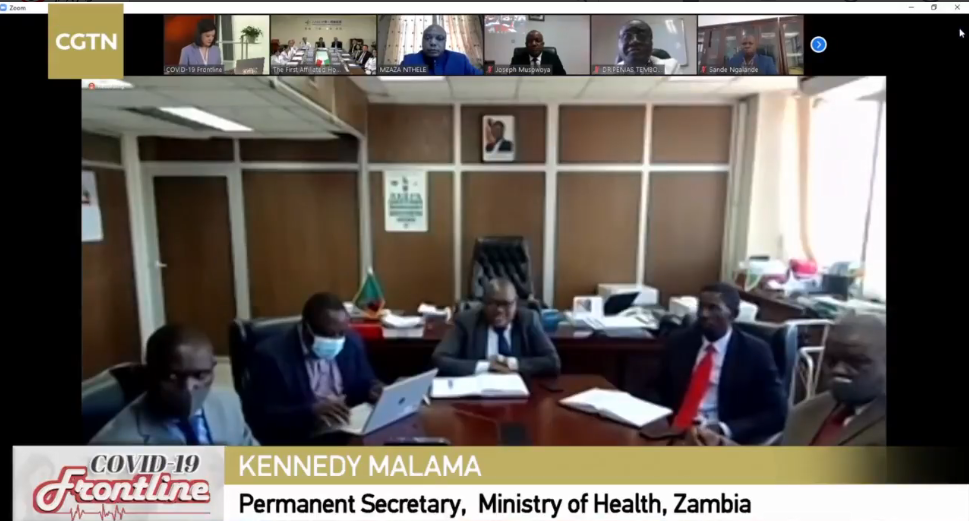
Kennedy Malama sent his greetings through the program. /CGTN
Kennedy Malama sent his greetings through the program. /CGTN
As of May 14, there are 441 confirmed COVID-19 cases in Zambia with 7 deaths, according to the World Health Organization.
The management of critically ill COVID-19 patients
Liu Zhengwen, a professor in the Department of Infectious Diseases at First Affiliated Hospital of XJTU, introduced the management of critically ill COVID-19 patients. He said in order to lower the death toll in the hospital, a death-rate-lowering group was established that discussed deaths every day, analyzed the causes and reviewed treatment processes.
07:05
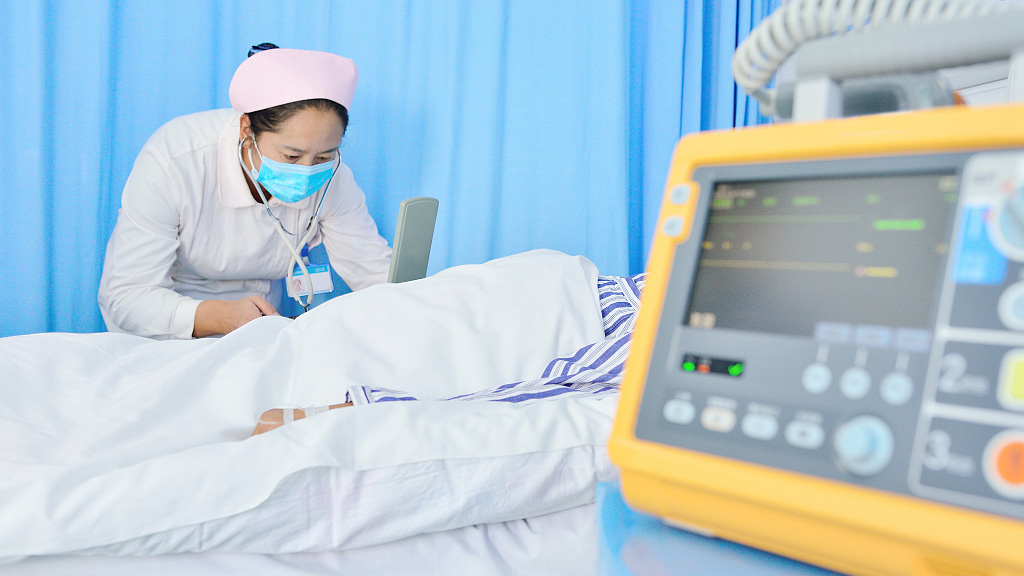
He said around 79.4% of critically ill patients were over 60 years old and most of them had been out of the hospital for more than 10 days before admission, plus the interval between hospitalization and tracheal intubation was more than 7 days. Treatment of critically ill patients includes blocking the pathway from mild to critical patients and adopting key measurements in advance. The patients that should be of high concern are senior citizens with diabetes, hypertension and cardiac diseases and those with serious pulmonary imaging findings.
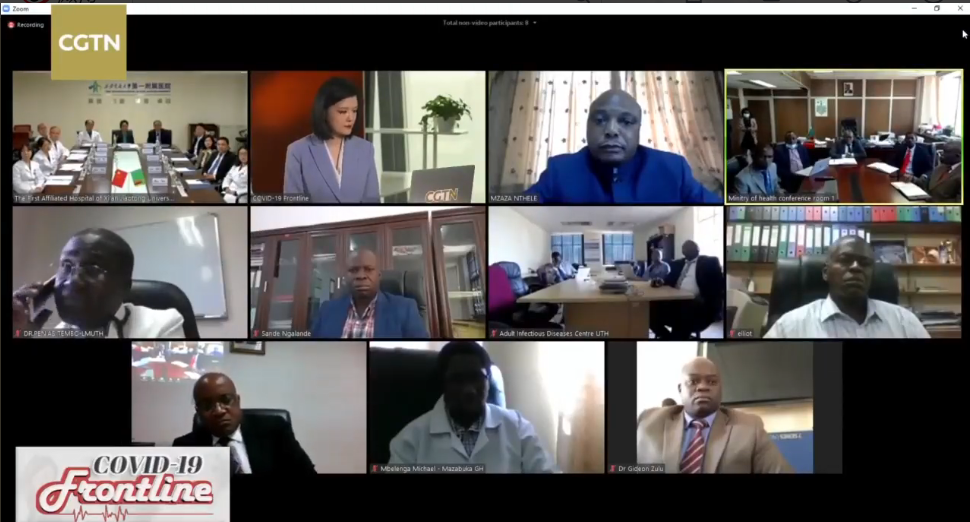
Exchange of COVID-19 experiences between China and Zambia. /CGTN
Exchange of COVID-19 experiences between China and Zambia. /CGTN
Protection of healthcare workers
Penias Tembo, senior medical superintendent at Zambia–China Friendship Hospital, said some of the medics in his hospital got infected with COVID-19, so he wanted to ask Chinese doctors about their experience of looking after medical workers on the front line.
Li Manxiang, the director and a professor in the Department of Respiratory and Critical Care Medicine at First Affiliated Hospital of XJTU, answered that it's important to protect healthcare workers from getting infected. Medics need to wear masks and protective clothes. They need to wash their hands thoroughly as soon as they finish their job. If they get infected, they need to be separated from other staff and receive antiviral treatment.
Plus, doctors and nurses who have contacted COVID-19 patients need to be quarantined for more than two weeks before going back home, Dr Liu Zhengwen added.
Effective antiviral therapies
Dr Liu said they have tried many antiviral drugs including Favipiravir, TNF-alpha, Remdesivir and Lopinavir in China. Recently, a trial in Hong Kong where medics used a combination of lopinavir/ ritonavir, ribavirin and interferon beta-1b has shown that the combination of these drugs suppresses the viral load, expedites recovery and reduces mortality in patients.
Dr Liu said they usually don't use antibiotics to treat patients. But if the patient has a secondary infection from bacteria, antibiotics will be used. He doesn't suggest the use of Hydroxychloroquine, as it doesn't show much benefit for COVID-19 patients and it has many side effects including cardiac arrest.
02:19
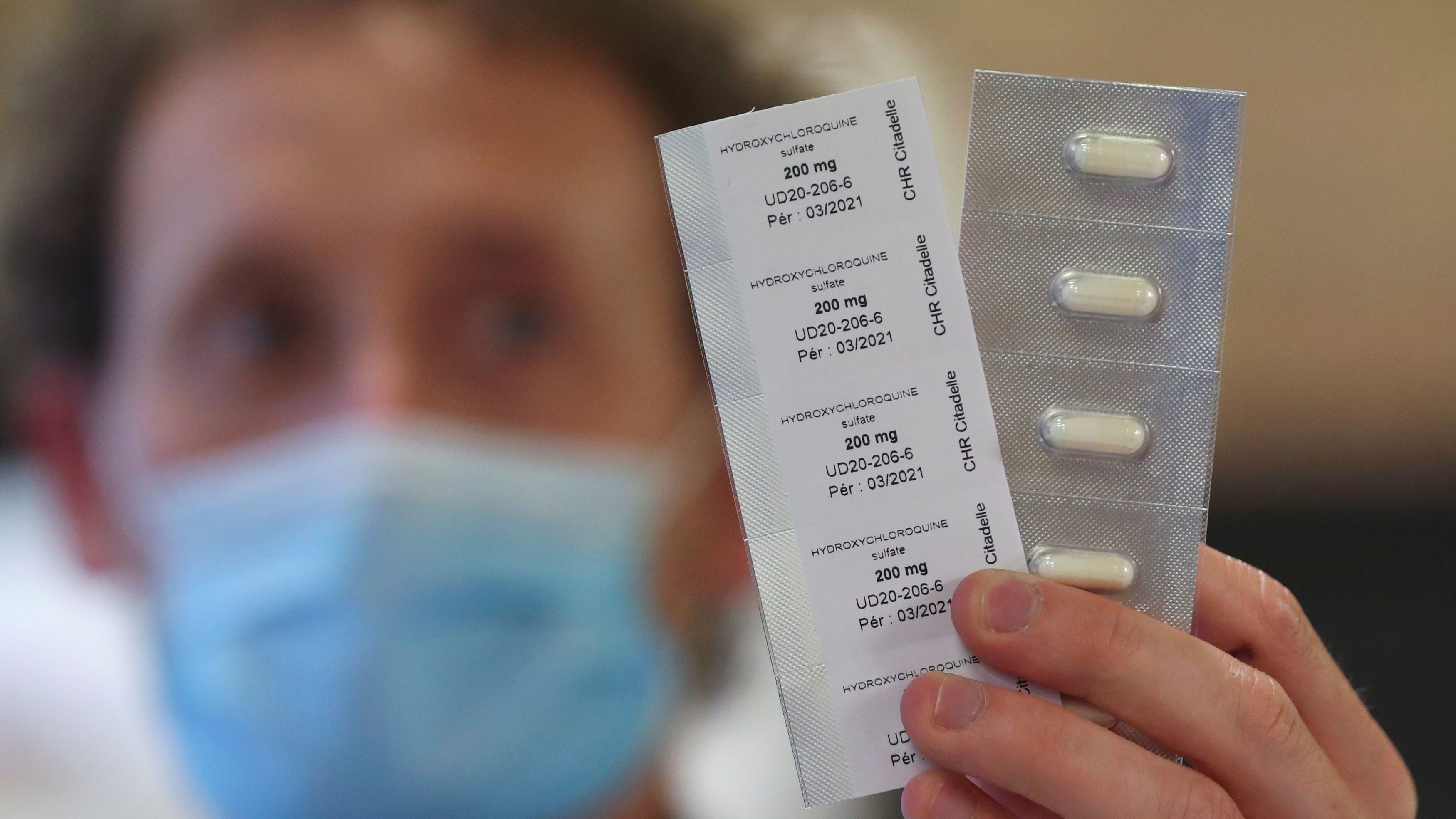
Three key suggestions on treating COVID-19 patients
Gideon Zulu, a provincial health director from Zambia, wanted to know about critical steps in treating COVID-19 patients.
Shi Bingyin, dean of First Affiliated Hospital of XJTU, said personal protection is vital for healthcare workers and the general public. The second is to pay attention to critically ill patients, especially those with diabetes and heart disease. The third is that it's better to have early treatment, early intubation and early use of ECMO.
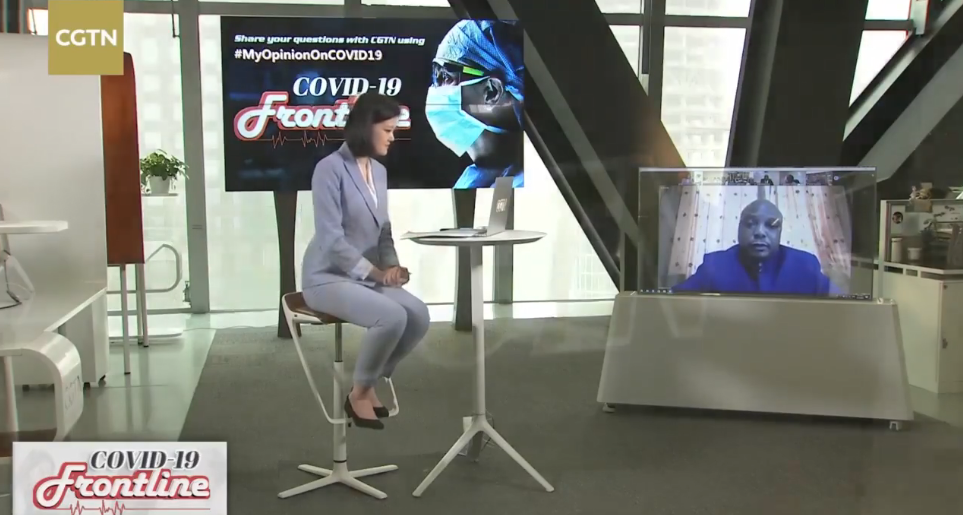
CGTN's live stream program "COVID-19 Frontline."
CGTN's live stream program "COVID-19 Frontline."
In later episodes of "COVID-19 Frontline," more front-line doctors and experts from Wuhan will join in to share their experience with their colleagues from other parts of the world. If you have any questions regarding COVID-19, you can share with us using #MyOpinionOnCOVID19 on Facebook.
Videos by Zeng Hongen
Cover image by Du Chenxin